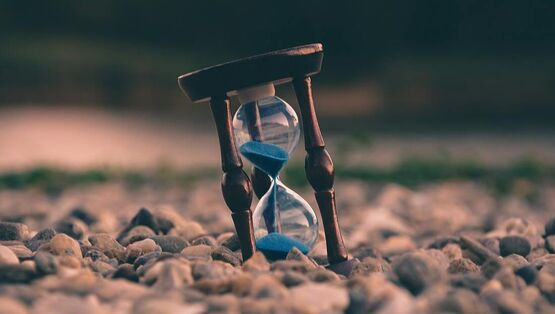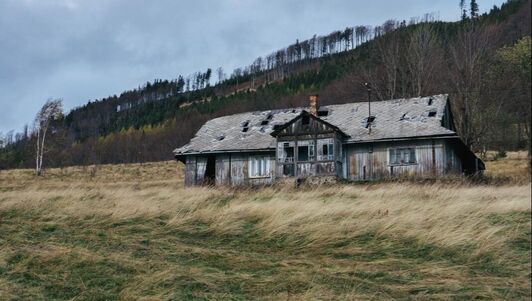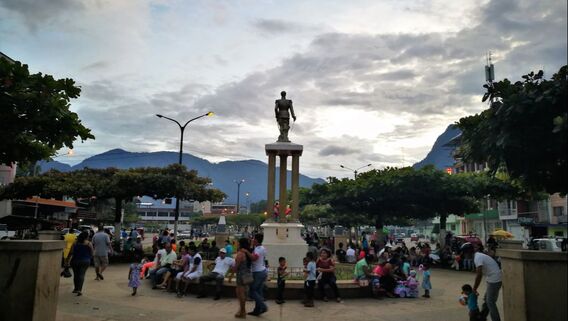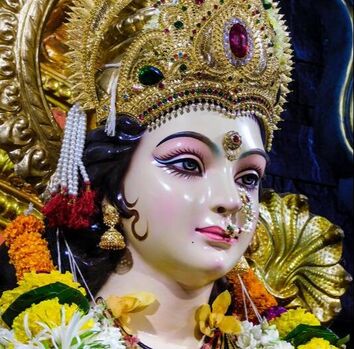|
By Anya Shukla I started an internship this week, and now I’m super tired and have absolutely no will to do anything. So my reading comprehension has taken a bit of a tumble. Apologies if this review feels shorter and/or less… coherent than my previous pieces. Honestly, not sure how I can ever work a 9-5 job (and also have hobbies) if this feels like such a struggle right now. How does adulting work??
0 Comments
By Anya Shukla I love Ocean Vuong; I love Ocean Vuong; I love Ocean Vuong so much! I first came across his work after impulse-buying "On Earth We're Briefly Gorgeous," which is now one of my favorite books on this entire planet. His writing makes me feel every emotion in existence all at once. I’ve read many books this year that feel aggressive in their grief. After reading these novels, heavy feelings just sit in my chest; I’m forced to carry the author’s emotional burden. Even though Vuong’s poetry deals with intense, difficult topics, the work doesn’t have an unhealthy physical impact. I’ll definitely cry, but it’s cathartic: I always feel better afterward.
By Anya Shukla This book has been on my to-read list for quite some time. I started it in January, and then my hold expired, which means that there was a six-month gap between my reading of the first and second halves of “Caste.” Please take my review with a grain of salt. This book also criticizes India. As a daughter of Indian immigrants, I'll admit that I am automatically predisposed to hate anything that attacks my homeland—even if the critique is accurate. I think it’s because I’ve spent most of my life reading Western authors who bash Indian culture and people. So when someone tries to hurt my country, I get super defensive.
By Anya Shukla This book is stunning. Machado has a way of crafting similes and pulling disparate words together in such unique, poetic, gorgeous ways. I fangirled over basically every other sentence. Review: In “In the Dream House,” Carmen Maria Machado chronicles her relationship with an emotionally abusive woman—how their interactions devolved from something beautiful to an ugly and devastating situation. Along with providing personal anecdotes, she discusses the broader history of abusive relationships within the queer community, primarily attacking the myth that women cannot be perpetrators.
By Anya Shukla There’s a lot of anti-Blackness and anti-queerness in this book. I can’t tell if this is a “sign of the times” or genuine commentary on racism/homophobia in Peruvian society… but either way, I don’t have to like it. If you want to read this book (and honestly, I’m not sure I would want to read this book after looking back over this review, but to each their own), be ready for some uncomfortable moments.
By Anya Shukla Did I enjoy Viet Thanh Nguyen’s writing style? Yes… but did it also remind me of “Call Me Zebra” and bring back some incredibly unpleasant memories? A resounding yes. These tragic flashbacks may have affected my reading and appreciation of this novel. Also, I don’t care what you say in your Goodreads commentary, Mr. Nguyen, the Philip Roth reference (not gonna describe it—if you know, you know) was very unnecessary. Why every author nowadays insists on alluding to “Portnoy’s Complaint” is beyond me.
By Anya Shukla I read one of John McWhorter’s other books for my mini-review six months ago, and I finally got to reading this one too. Honestly, my mini-review kinda said it all… but there are some new arguments in “Woke Racism” for a little variation. Review: Although trained as a linguistics scholar, John McWhorter has recently made a name for himself as a Black conservative voice in liberal circles. In his newest book, “Woke Racism,” McWhorter continues to provide an unconventional (compared to the traditional liberal news media) perspective.
By Anya Shukla There’s a movie called “Indian Sweets and Spices” that’s been getting a fair amount of buzz lately. I personally don’t love the film—the plot sometimes comes out of left field, and the dialogue feels a little stilted. This book is like that movie, but twenty times worse.
By Anya Shukla I traveled to New Jersey last week, which was pretty exciting! A little break from the usual read book/write review/hang out in my room situation that’s been going on for the last few months. Ever since I left Starbucks, I spend most of my time doing work on the computer, so it was nice to step away and actually meet people in person. Review: In Kim Fu’s “Today I Am a Boy,” Audrey*, the child of Chinese immigrants, knows she’s a girl from a young age. Yet because of cultural pressures and her family’s norms, she cannot express her gender identity. Through the duration of this book, which takes us through Audrey’s childhood to middle age, she discovers her full self.
By Anya Shukla I talked to someone from Hawaii last week, and she mentioned that the state relies heavily on the mainland for supplies. Because Hawaii imports almost everything its people eat, if the rest of the U.S. stopped exporting (due to shipping problems, for example), Hawaii would run out of food in two weeks(!). Because of this, the state is trying to become more self-reliant by bringing back some of the old ways of food production—such as fish ponds or taro plants—that got eliminated during the annexation of Hawaii by America.
|
Archives
February 2023
Categories
All
|










 RSS Feed
RSS Feed